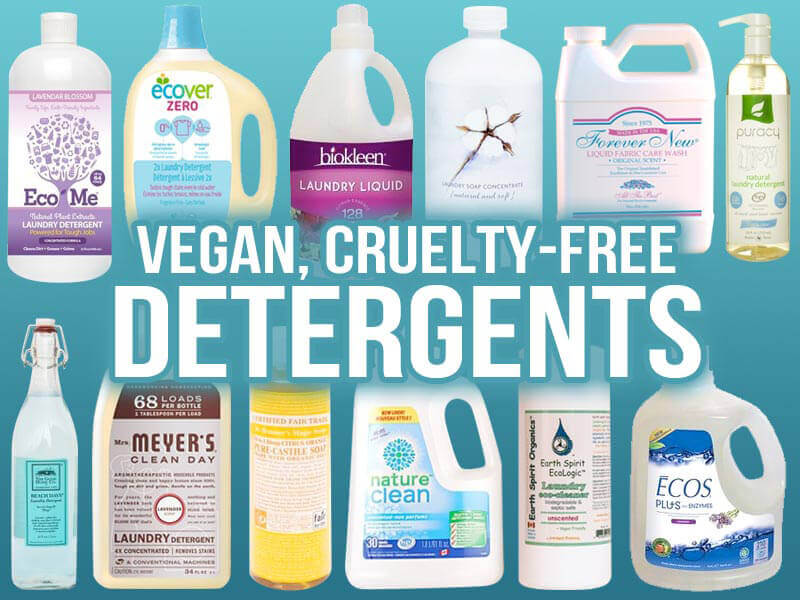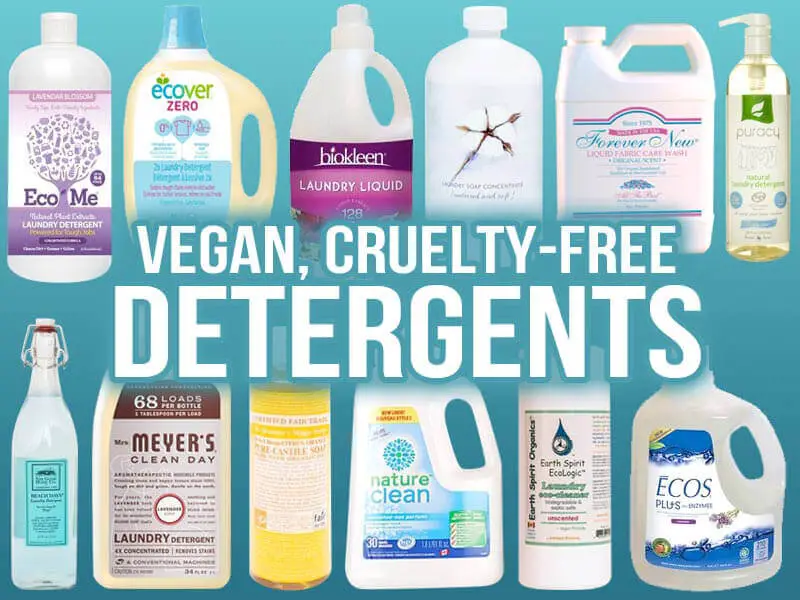Laundry detergent is a household staple that we rely on to keep our clothes clean and fresh. However, many consumers are now asking the important question: is all laundry detergent cruelty-free? With the growing concern for animal welfare, it’s crucial to understand the practices of the brands we use and the impact they have on animals.
While some brands claim to be cruelty-free, others use animal testing to determine the safety and effectiveness of their products. In this article, we’ll explore the concept of cruelty-free laundry detergent and the various factors that determine whether or not a brand is truly ethical in its practices. Join us as we dive into this important topic and uncover the truth about the laundry detergent industry.

Is All Laundry Detergent Cruelty Free?
When it comes to choosing a laundry detergent, many people consider factors such as price, scent, and effectiveness. However, an increasingly important consideration for many consumers is whether or not the product is cruelty-free. In recent years, there has been a growing awareness of the impact that the production and testing of household products can have on animals. In this article, we will explore the question of whether or not all laundry detergent is cruelty-free.
What does cruelty-free mean?
Before we can answer the question of whether or not all laundry detergent is cruelty-free, it’s important to define what we mean by that term. Essentially, a product is considered cruelty-free if it has not been tested on animals at any point during its production or development. This includes both the final product as well as any individual ingredients used in its formulation.
It’s worth noting that there is not currently a universal certification or standard for cruelty-free products. However, many companies will use labels such as “not tested on animals” or “cruelty-free” on their packaging to indicate that they do not engage in animal testing.
Is all laundry detergent cruelty-free?
Unfortunately, the answer to this question is no. While some laundry detergents are indeed cruelty-free, many of the most popular brands do engage in animal testing at some point in their production process. For example, some companies may test individual ingredients on animals before incorporating them into their laundry detergent formula.
It’s worth noting that some companies may also outsource their animal testing to third-party laboratories, which can make it difficult to determine whether or not a product is truly cruelty-free. In these cases, it may be necessary to do some research or contact the company directly to get a clear answer.
Why do companies test laundry detergent on animals?
Animal testing has been a common practice in the development of household products for many years. Companies may perform tests in order to determine the safety and effectiveness of a product, as well as to identify any potential side effects or allergic reactions.
However, many people argue that animal testing is not only cruel, but also unnecessary. There are now many alternative methods for testing the safety of household products, including computer modeling and in vitro testing using human cells.
The benefits of using cruelty-free laundry detergent
For those who are concerned about animal welfare, choosing a cruelty-free laundry detergent can be an important way to make a difference. Not only does it help to reduce the demand for animal testing, but it also supports companies that are committed to ethical and sustainable practices.
In addition, many cruelty-free laundry detergents are also formulated with natural and eco-friendly ingredients, which can be better for both the environment and your own health.
Cruelty-free laundry detergent vs. traditional laundry detergent
When it comes to performance, there is often little difference between cruelty-free laundry detergents and traditional brands. Both can effectively remove stains and leave your clothes smelling fresh and clean.
However, there are some key differences between the two types of products. For example, cruelty-free laundry detergents may be formulated with gentler, more natural ingredients that are less likely to irritate sensitive skin. They may also be free from harsh chemicals and synthetic fragrances, which can be better for the environment.
How to choose a cruelty-free laundry detergent
If you’re interested in making the switch to a cruelty-free laundry detergent, there are a few things to keep in mind. First, look for products that are labeled as “cruelty-free” or “not tested on animals.” You can also do some research to find out which companies have committed to ethical and sustainable practices.
In addition, consider the other factors that are important to you in a laundry detergent, such as price, scent, and effectiveness. There are now many cruelty-free options available at a variety of price points, so you’re sure to find a product that meets your needs and preferences.
The bottom line
While not all laundry detergents are cruelty-free, there are many options available for those who are committed to ethical and sustainable practices. By choosing a cruelty-free laundry detergent, you can help to reduce the demand for animal testing and support companies that are committed to making a difference.
Frequently Asked Questions
Is All Laundry Detergent Cruelty Free? Here are some commonly asked questions and answers about the topic.
What does it mean for a laundry detergent to be cruelty free?
A laundry detergent is considered cruelty free if it has not been tested on animals during the production process. This means that the ingredients used in the detergent have not been tested on animals either.
Many companies now offer cruelty free laundry detergents that are made from natural ingredients and are safe for both the environment and animals. These products are a great choice for anyone who wants to live a cruelty free lifestyle.
Does All Laundry Detergent test on animals?
According to the All website, their products are not tested on animals. However, it is important to note that All is owned by the parent company Henkel, which does test on animals in certain circumstances.
If you want to ensure that the laundry detergent you are using is completely cruelty free, it is best to look for products that are certified by organizations such as PETA or Leaping Bunny.
What are some alternatives to All Laundry Detergent that are cruelty free?
There are many cruelty free laundry detergents available on the market today. Some popular brands include Seventh Generation, Method, and Mrs. Meyer’s. These products are made with natural ingredients and are free from harsh chemicals that can harm the environment or animals.
If you are looking for a more environmentally friendly option, you can also try using soap nuts or laundry detergent strips, which are both biodegradable and compostable.
Are there any potential health benefits to using cruelty free laundry detergents?
Cruelty free laundry detergents are often made with natural ingredients, which can be gentler on the skin and less likely to cause allergic reactions or skin irritations. These products are also free from harsh chemicals that can be harmful to both humans and animals.
By using a cruelty free laundry detergent, you can not only protect the environment and animals, but also promote better health and well-being for yourself and your family.
How can I be sure that the laundry detergent I am using is truly cruelty free?
The best way to ensure that a product is truly cruelty free is to look for certification from organizations such as PETA or Leaping Bunny. These organizations have strict criteria that companies must meet in order to be certified as cruelty free.
You can also research the company’s policies and practices to see if they are committed to animal welfare and ethical production methods. By doing your research and choosing products from companies that align with your values, you can make a positive impact on the world around you.
Green Laundry Products – Vegan, Cruelty Free, and Natural!
In conclusion, the answer to whether all laundry detergent is cruelty-free is not a simple one. While some companies do make an effort to ensure that their products are not tested on animals and are environmentally friendly, others still engage in animal testing and use harsh chemicals in their formulas. It is important for consumers to do their research and read labels carefully to make informed decisions about the products they purchase.
With the increasing demand for cruelty-free and eco-friendly products, many companies are starting to make changes in their manufacturing processes to meet these standards. It is important for consumers to support these companies and encourage others to follow suit by choosing products that align with their values.
Ultimately, the responsibility falls on both companies and consumers to make a positive impact on the environment and animal welfare. By working together, we can create a more ethical and sustainable future for all.

